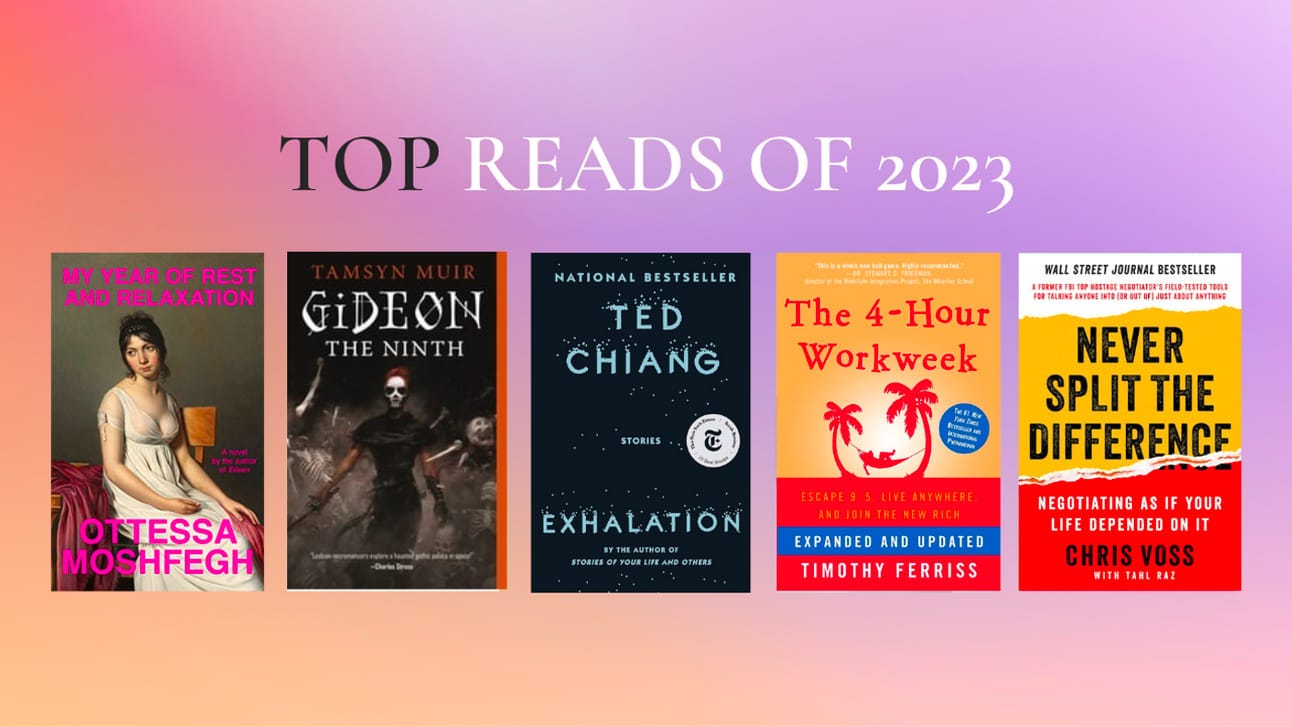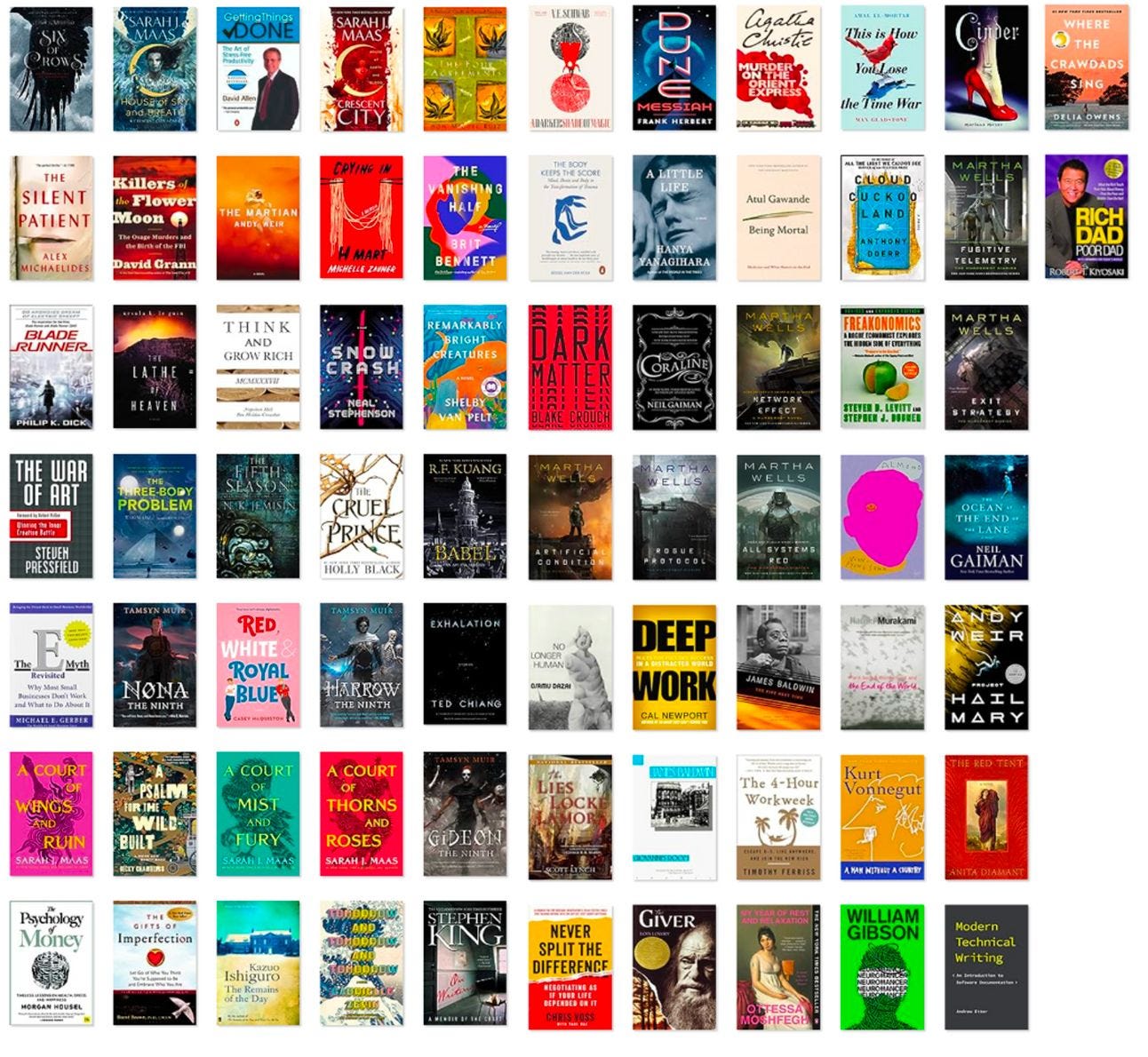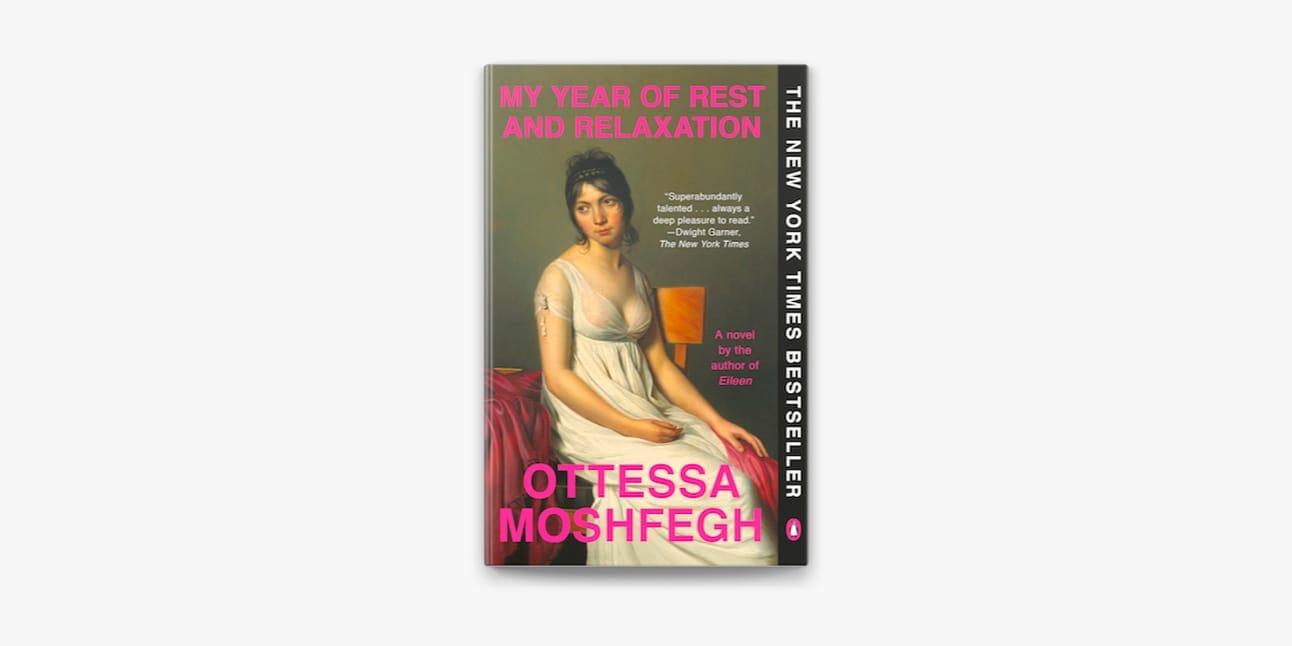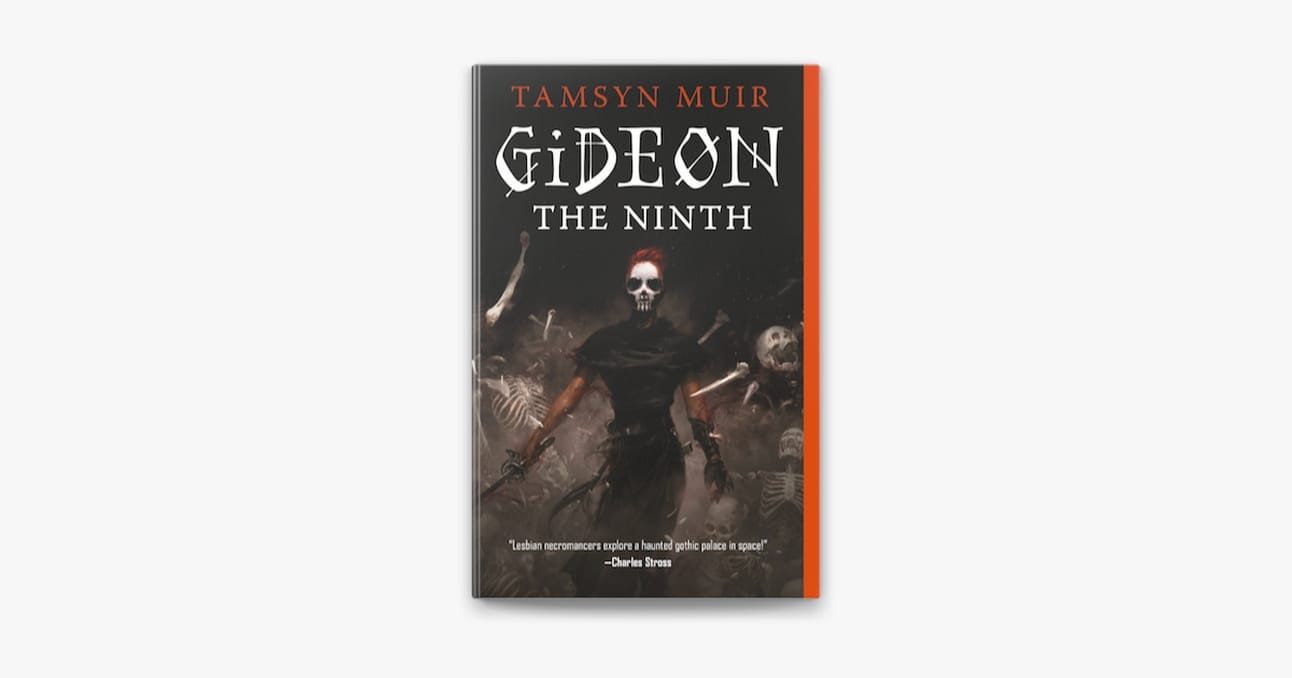My Top reads of 2023.
Hello and welcome to my 2023 book round up. In this blog post I’m going to tell you about my favorite books that I read in 2023. These books are not objectively the “best” books that I read this year, but rather the ones that impacted or resonated with me the most. You can think of them as my personal taste. :-)
If you’ve read this books or plan to read them - feel free to let me know in the comments section of this blog post on arquebun.beehiiv.com! I’m interested to know your opinions on these books as well.
Honorable Mentions
The books I read in 2023
Giovanni’s Room (1956) by James Baldwin. A gay romantic tragedy between an American man and an Italian man in Paris. The American man is a serial cheater and in denial about his sexuality. It crazy to me that this book was written in 1956. It is a modern classic.
The Body Keeps the Score (2014) by Van Der Kolk. A great psychology book about trauma and its effects on the body. The book itself can be a pretty traumatic read (lol) so I recommend skipping to the second half of the book about trauma treatment. I’ve never been a person for talk therapy, so I really loved learning about alternative therapy paths that you can live and apply in your own life. It inspired me to put a lot more effort into find and building interpersonal relationships as a means to treat and prevent traumatic experience for both myself and other people.
Six of Crows (Six of Crows #1) (2015) by Leigh Bardugoh. A fantasy heist novel series. I’ve read a ton of books where the author claims the main character is morally grey, but this is one of the only books I’ve read where he actually feels - grey. A very dark grey. Its part of an extended universe series of novels. (I am personally not a fan of extended universes). The first book in this series is a great stand alone book.
The Three Body Problem (2008) by Liu Cixin. This science fiction book series starts during the Chinese Cultural Revolution. It is very strange, trippy, and experimental novel that still upholds the science part of science fiction. I really enjoyed reading a science fiction by an author who isn’t American (this author was born in and lives in mainland China). The pacing of the books is quite weird. I personally think the book should’ve gone another round of content editing and restructuring. I would’ve cut about 15% of the fluff.
Tomorrow and Tomorrow and Tomorrow (2022) by Gabrielle Zevin. A group of three game designers make games together and become eventually successful. It follows them throughout their lives as students, young adults, and as successful game developers. It is a joyful book that ends in bitter tragedy.
Now, on to my favorites.
Key:
💚 - a positive about the book. Something I liked. Not necessarily something everyone will like about the book.
➖ - a neutral fact about the book. Something you should know.
❌ - a turn off, warning, or bad part about the book.
My Year of Rest and Relaxation (2018) by Ottessa Moshfegh
My Year of Rest and Relaxation is about a young WASP woman with dead parents and intense mommy issues in New York City in the year 2000. She takes a ton (and I mean ton) of prescription medication prescribed to her by her weirdo, awful psychiatrist to try to induce a narcotic hibernation that will last for 1 year.
“I did crave attention, but I refused to humiliate myself by asking for it.” ― Ottessa Moshfegh, My Year of Rest and Relaxation
💚 Dark comedy. The main character is unlikeable and an asshole.
➖ Not very relatable. The protagonist is rich white woman and lives in New York who complains constantly about her life. I didn’t mind this (I thought it was funny and entertaining) but it can turn some people off to this book.
➖ Can be pretty tone deaf. (I also thought this was funny) for the same reason as the bullet point above.
❌ Micro aggressions by the asshole main character about one of the Asian side characters. I didn’t find this to be a turn off because it was already established that the main character is white woman out of touch with the real world. The Asian side character himself has his own personality though and isn’t a stereotype, so I don’t believe the author thinks of Asian people this way. Just the white main character.
Similar books: The Bell Jar, The Glass Castle
Gideon the Ninth (2019) by Tamsyn Muir
Gideon the Ninth is a science-fantasy story about a space-nun princess who can control bones (necromancer) and her horny himbo lady knight who are in an enemies-to-lovers situationship as they represent their planet in an interplanetary competition to prove themselves to their immortal, intergalactic, all-powerful god-king-emperor.
"In any case, both she and Harrowhark turned up, gorgeously gowned in their Locked Tomb vestments, painted like living skulls, looking like douchebags.” - Tamsyn Muir, Gideon the Ninth
💚 Genuinely funny in a queer, young female way. I haven’t seen this type of humor in many other books, so it was a breath of fresh air for me personally to read.
💚 Great, flawed, and overall entertaining characters.
💚 Blood, guts, bones, and action.
➖ Generic premise and pattern. I found that the characters and interactions were the most interesting part of this book. Later books in this series have much more interesting plot formats.
➖ The group of characters the story follows are all extremely powerful and intelligent. Without any less powerful characters to compare them too, they all seem average in relative context — even when we are reminded how “special” they are.
❌ 98% fantasy. 2% science fantasy. The science part of the science-fantasy genre of this series isn’t shown much in Gideon the Ninth (The Locked Tomb #1). The only time it fulfills this part of the genre is when the characters get on a space-ship, which could have easily been replaced with any kind of aircraft and still been believable within the story. As a science fiction buff, I would’ve liked to see more of why this book deserved its science-fantasy (and not just fantasy) genre description.
Similar books: Dorohedoro, Homestuck, Six of Crows
Exhalation (2019) by Ted Chiang
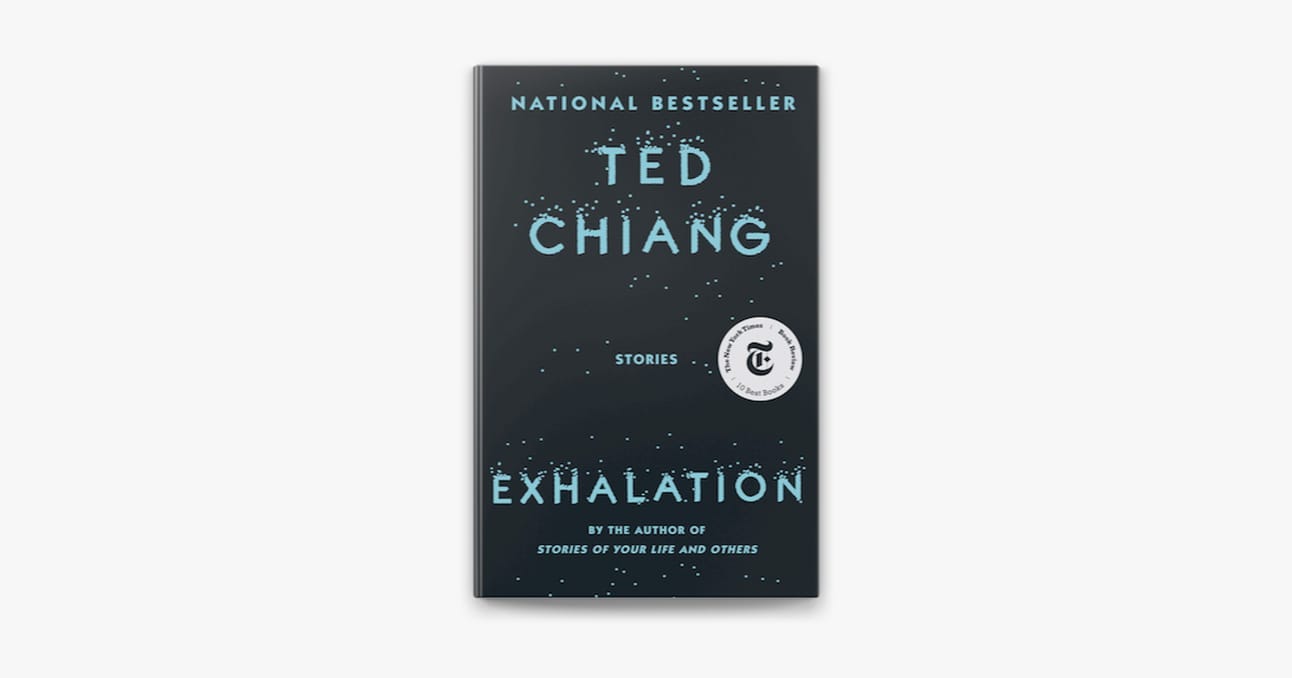
Exhalation is a series of Science Fiction short stories by author Ted Chiang. It is his second collection of Science Fiction short stories - the first being The Story of Your Life and Others. One story of which was adapted as a major motion picture (Arrival).
“And I think I’ve found the real benefit of digital memory. The point is not to prove you were right; the point is to admit you were wrong.” ― Ted Chiang, Exhalation
💚 Very original and thought provoking stories and premises.
➖ There are so many different stories its easy to forget some of them and their contexts.
➖ Some stories can be corny and unbelievable. I personally think this is just a result of experimental thinking, and I would much rather that the author experiment and “”fail”” with strange topics than never approach them at all.
Similar books: Stories of Your Life and Others, The Three Body Problem, Project Hail Mary
The 4-Hour Work Week (2007) by Tim Ferris
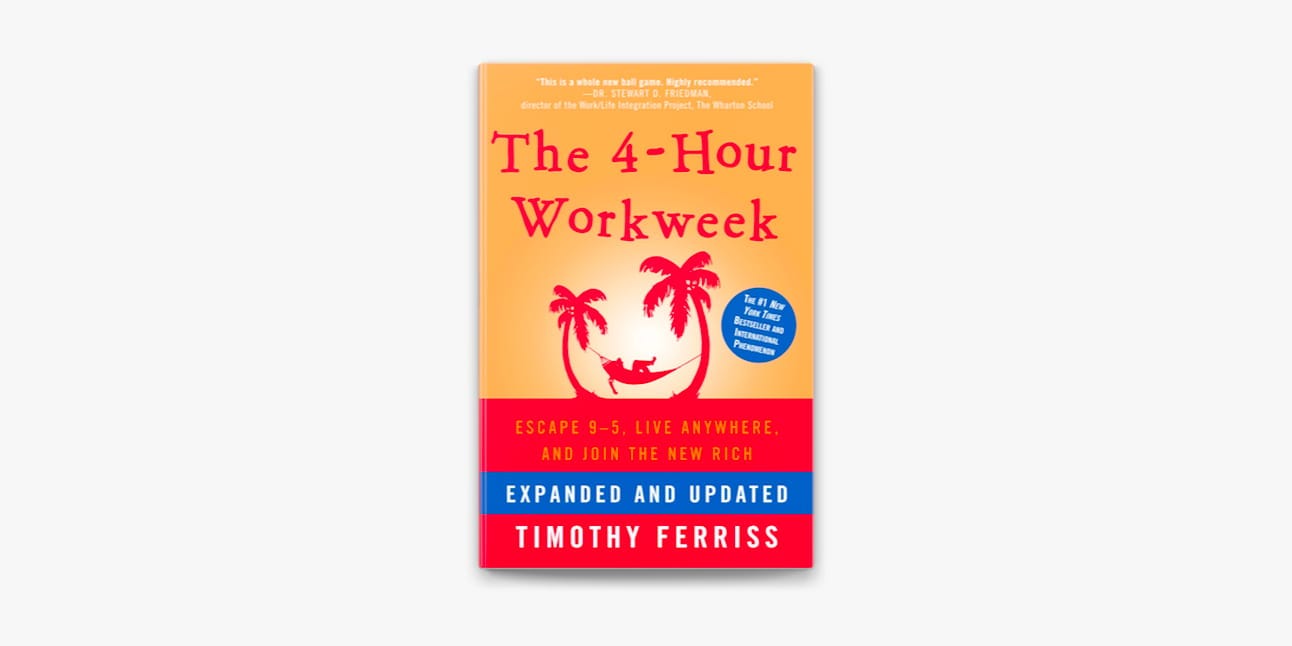
The 4-Hour Work Week is about living your best life; and by that I mean how to generate passive income, moderate your business, and eventually leave your business in the hands of your employees to where it can function and generate money for you (”passively”) without you or your direct involvement. All while you live in Bali or Argentina or where ever else you can stretch your American dollars to live above and beyond your original financial means.
“For all of the most important things, the timing always sucks. Waiting for a good time to quit your job? The stars will never align and the traffic lights of life will never all be green at the same time”… “"Someday" is a disease that will take your dreams to the grave with you.” - Tim Ferris, The 4-Hour Work Week
💚 This book was wayy before its time. Ferris knew about working remotely much, much earlier than the rest of the world did.
💚 I liked the sections on how to write actionable emails (seems kind of boring but is actually quite interesting and applicable, especially if you work remotely), travel cheaply, live without material things (kind of sort of lmao), and make passive income.
💚 Its more than just a mindset or self-help book. It gives you practical ways, methods, tools, websites, and more that you can explore to start your journey toward a financial independent and “freer” lifestyle.
➖ I’m not a fan of this mindset: “Earn dollars. Live on pesos. Compensate in rupees.”
➖ I’m not a fan of this mindset either: “Remember—boredom is the enemy, not some abstract ‘failure’.” well intentioned. I personally believe that boredom is a natural part of life.
❌ Ferris seems really out of touch with reality, or at least seriously lacks empathy and self-awareness. Especially during the virtual assistant section where he recommends getting a virtual assistant for you to communicate and maintain your relationships for you (like responding to your emails, or setting up anniversary dinner for you and your wife so you don’t have to remember the date of your anniversary yourself).
❌ I don’t like how materialistic a lot of his goal setting is. (Ex. Dreamlining…) He uses the example of if you want a $250,000 lambo, you should break it down into its monthly cost - $2,780 monthly. So if you make $50,000 annually, you can still get your $250K lambo so long as you allocate your monthly income right. Its a cool example for how to manage your finances, but I’m personally against this mindset, and would just recommend a person re-evaluate their wants and not get the lambo at all.
Similar books: The E-Myth Revisited; Rich Dad, Poor Dad; The Psychology of Money
Never Split the Difference (2016) by Chris Voss
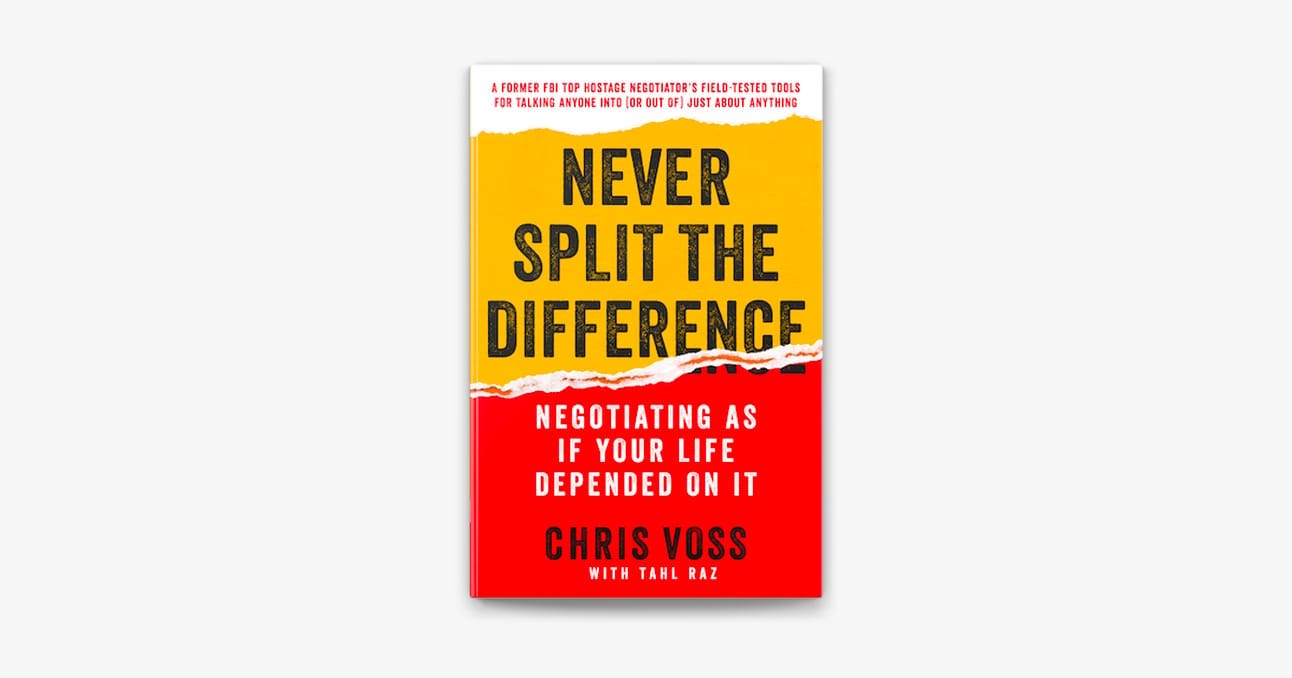
Author Chris Voss was once a hostage negotiator for the FBI. This book covers how you can remain calm, negotiate, and turn the table in your favor in high stakes, high pressure situations.
“A good negotiator prepares, going in, to be ready for possible surprises; a great negotiator aims to use her skills to reveal the surprises she is certain to find.” - Chris Voss, Never Split the Difference
💚 This book is a gold mine on human to human interactions. Even if you are not in situation where you have to negotiate with another person, it gives you great insight on how to approach social situations with empathy.
💚 Chapter summaries were good at recapping what was going on in the chapters.
➖ The book’s examples are all high stakes negotiations - like terrorist or bank hostage situations. Don’t sit down to read this book thinking you’re going to learn specific salary negotiation tips or scripts. You have to find a different book for that.
❌ I think the author could’ve done a better job explaining points that were in the chapter summary. Some of the best, meatiest tidbits are found in the bullet pointed sections, rather than in the chapter body.
Similar books: 48 Laws of Power, How to Win Friends and Influence People



